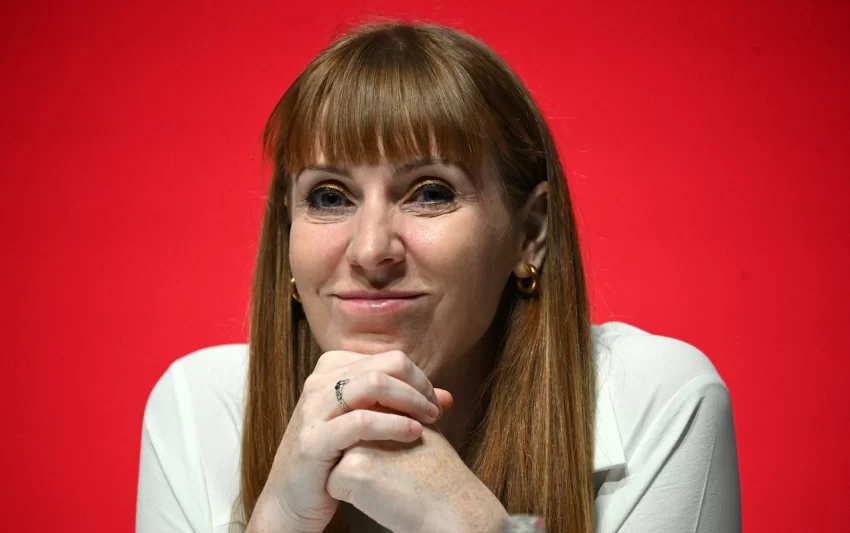Farage treads a fine line as anti-migrant protests rage
LONDON — Nigel Farage is gambling that a hardline stance on migration is a surefire vote-winner. But it’s a risky bet.
Amid a spate of protests outside hotels housing some of Britain’s asylum seekers, Farage’s insurgent Reform UK party faces a dilemma.
Should it condemn the demos and disappoint voters on the right? Or lean in — and risk alienating the more moderate voters who are now powering its rise?
Reform UK’s base is increasingly mirroring the average Briton, according to fresh polling from the think tank More in Common. Just 40 percent of its current supporters backed the party in 2024, and just 16 percent of its current backers once voted for Farage’s old outfit, UKIP.
Its gender gap has narrowed, its age profile has evened out, and many of its newest recruits are less glued to online culture wars.
That makes Reform’s growth, in the pollsters’ words, both “a blessing and a curse.” The broader the party gets, the greater the risk of being defined by its more radical supporters — and losing the very voters Farage has worked to bring in.
Members of the far-right have egged on protests outside the Bell Hotel in Epping.
What began as a local protest quickly drew in the Homeland party — a breakaway from Britain’s biggest far-right group, Patriotic Alternative — alongside Britain First, and hard-right agitator Tommy Robinson.
So far, Reform has backed the right to protest — Farage described people protesting as “genuinely concerned families,” and insisted that violence was caused by “some bad eggs.”
“We don’t pick and choose the protest,” his Deputy Leader Richard Tice told POLITICO in an interview. “We don’t choose to support some and not others. We just say lawful, peaceful protest is an important part of a functioning democracy.”
Distance
But it’s a careful line for a party that has spent the past year trying to sharpen its operation — tightening vetting rules for candidates and putting distance between itself and overt racism.
“They’ve drawn a clear line when it comes to distancing themselves from Tommy Robinson,” said Marley Morris, associate director for migration, trade and communities at the Institute for Public Policy Research.

“That’s actually come at quite significant costs for Nigel Farage, because of its consequences for his relationship with Elon Musk.” The Tesla owner has been a staunch online backer of Robinson, who was jailed in the UK for contempt of court after he repeated false claims about a Syrian schoolboy.
Farage — whose party descends on Birmingham for its annual conference this weekend in a jubilant mood — is riding high in the polls, and will be buoyed by polling that consistently puts migration at or near the top of Brits’ list of concerns.
But the summer of tense protests risks complicating matters, according to some British commentators. Farage “feels under pressure from the online right,” argued Sunder Katwala, director of the British Future think tank.
Over the past month, Reform has doubled down on its anti-immigration pitch — in language critics say edges closer to the far-right.
In August, Tice told Times Radio that there should be more groups of men on a “neighborhood watch-style basis within the bounds of the law” to protect women from the “sneering, jeering, and sexual assaults and rapes that are taking place, coincidentally, near a number of these asylum-seeker hotels.”
Pressed by POLITICO, Tice doubled down on this position. “There is already vigilantism going on. No one wants to report it, but that’s the reality of life … It is much better to shine the spotlight on an issue, talk about it … and then government can make better policy.”
Tice likens asylum arrivals in the UK to “an invasion double the size of the British Army.”

“That’s how people talk about it in the pubs and clubs and bus stops and sports fields up and down the country. I know that makes people in Westminster uncomfortable — tough,” Tice told POLITICO.
The Connolly factor
The party has also wrapped its arms around Lucy Connolly, a 42-year-old woman who was jailed after pleading guilty to stirring up racial hatred against asylum seekers with a post calling for migrant hotels to be set on fire.
Reform has painted Connolly as a political prisoner of Keir Starmer’s government, with Farage even flying to Washington this week to slam Britain’s online safety rules and likening the UK to North Korea on free speech.
Cabinet ministers blasted Farage’s U.S. trip as a “Talk Britain Down” tour. Business Secretary Jonathan Reynolds called it “as anti-British as you can get.
More in Common polling shows that while voters are split on whether Connolly’s sentence was too harsh or too lenient, 51 percent want politicians to distance themselves from her, including more than a quarter of Reform voters.
“The transnational neoconservative right is a massive danger to the British right, not an opportunity,” argued IPPR’s Morris.
More in Common polling shows that many of Reform’s newer supporters view U.S.-style populist figures, such as Donald Trump, negatively. Social attitudes are also shifting, with six in ten voters supporting same-sex marriages, and 46 percent thinking the legal abortion limit should stay at 24 weeks.
Policy pitfalls
While Reform is confidently ahead in national voting intention polls, there is evidence of some unease about its specific policy pledges. A proposal to work with the Taliban to return Afghan asylum seekers got a mixed reception. Some 45 percent of Britons said that giving money to the regime to take returns would be “completely unacceptable,” according to a YouGov poll.
The party has also struggled to clarify its stance on deporting children. Chairman Zia Yusuf suggested unaccompanied minors could eventually be removed under the party’s mass deportation plans — only for Farage to row back, insisting it wouldn’t happen in Reform’s first term.
“When it came to deporting children, they realized that what they proposed isn’t really sustainable — it seems, frankly, inhumane,” said Morris. “If [Reform] wants to appeal to the wider public, and not just to its base, it can’t just appeal to this kind of narrow group of people.”
Tice has since sought to narrow the focus. “We’ve said that we will start focusing on detaining and deporting males first,” he said. “If a husband is detained and deported, if he’s got a wife and children, they’ve got a choice to make.
“The children of parents who are here illegally, those children are not British citizens by law,” he continued. “There are bound to be specific cases and things, but as a principle, we’re not going to go through a whole long list of exemptions. If you do that, you actually create a criminal gang focus on the exemptions, and then people try to game that system. So we’re not playing that game.”




















:quality(85):upscale()/2023/09/18/918/n/1922398/a1136b676508baddc752f5.20098216_.jpg)
:quality(85):upscale()/2025/10/09/670/n/1922283/00b944c868e7cf4f7b79b3.95741067_.jpg)
:quality(85):upscale()/2025/10/15/765/n/1922398/29c37a6e68efd84bb02f35.49541188_.jpg)
:quality(85):upscale()/2025/09/09/891/n/1922283/7222624268c08ccba1c9a3.01436482_.png)
















